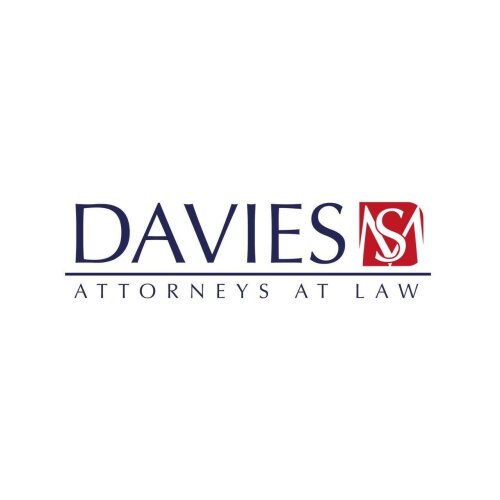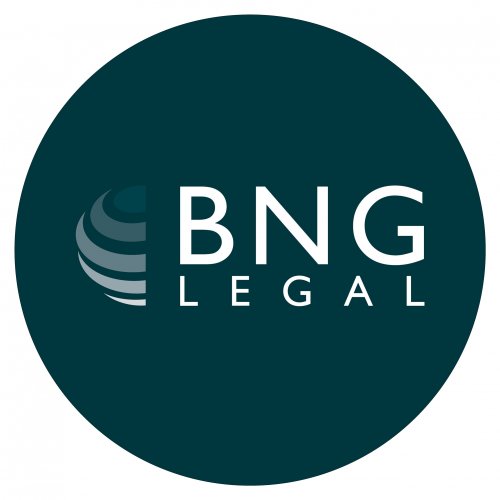Best Project Finance Lawyers in Phnom Penh
Share your needs with us, get contacted by law firms.
Free. Takes 2 min.
List of the best lawyers in Phnom Penh, Cambodia
About Project Finance Law in Phnom Penh, Cambodia
Project finance is a financial structure where long-term debt and equity are used to fund large-scale projects. In Phnom Penh, Cambodia, project finance commonly underpins developments in infrastructure, energy, telecommunications, and real estate. Project finance transactions often involve multiple parties, sizable investment, and complex legal arrangements to allocate risks and returns among the parties involved. Cambodia's growing economy and openness to foreign investment make Phnom Penh a prominent hub for such activities. Understanding the unique aspects of local law and regulatory practice is crucial for successful project financing in this jurisdiction.
Why You May Need a Lawyer
Project finance deals in Phnom Penh can be complex and often necessitate legal expertise to guide transactions, ensure compliance, and protect the interests of all parties. Some common situations where a lawyer may be required include:
- Preparing and negotiating financing agreements with local and foreign financial institutions
- Securing government approvals, permits, and licenses related to the project
- Drafting and reviewing joint venture or consortium agreements
- Identifying and mitigating project risks (legal, regulatory, environmental, or financial)
- Structuring special purpose vehicles (SPVs) to isolate project risk from sponsors
- Advising on taxation, cross-border investment, and repatriation of profits
- Understanding and navigating Cambodian foreign investment laws
- Resolving disputes between project stakeholders or with contractors, suppliers, or government bodies
Given the size and stakes of typical project finance transactions, having a legal advisor familiar with Cambodian project finance law is essential for safeguarding investments and ensuring project success.
Local Laws Overview
The Cambodian legal system is based on both civil law traditions and a growing body of commercial legislation. Some key legal aspects relevant to project finance in Phnom Penh include:
- Foreign Investment Law: The Law on Investment of the Kingdom of Cambodia regulates foreign direct investment and offers incentives such as tax holidays and duty exemptions under certain conditions.
- Licensing and Permits: Major projects, especially in infrastructure, energy, or telecom, require government approvals, including environmental impact assessments and land use permits.
- Special Purpose Vehicle (SPV): Projects are often structured through an SPV, a separate legal entity that owns the project assets and takes on liabilities related to the project.
- Security Over Assets: Cambodian law allows for various forms of security (such as mortgages and pledges) to secure project finance loans, but local registration and enforcement processes must be carefully followed.
- Public Private Partnerships (PPP): PPPs are regulated by specific decrees and guidelines, often involving negotiation with state authorities and compliance with procurement laws.
- Dispute Resolution: Cambodia has mechanisms for commercial dispute resolution, including the National Commercial Arbitration Centre (NCAC) and recognition of foreign arbitral awards under the New York Convention.
Understanding these local legal frameworks is vital for the proper planning, execution, and management of any project finance transaction in Phnom Penh.
Frequently Asked Questions
What is project finance?
Project finance is a method of funding projects where the loan is secured mainly by the project assets and repayments are made from the project's cash flows, not the general assets or credit of the project sponsors.
What sectors use project finance in Phnom Penh?
Project finance is most commonly used in infrastructure (roads, bridges, airports), energy (power plants, solar farms), water and sanitation, and large-scale property and industrial developments.
Can foreign investors participate in project finance deals in Cambodia?
Yes, Cambodia welcomes foreign investment in most sectors and provides incentives such as tax breaks, subject to government registration and compliance with relevant laws.
What is a special purpose vehicle (SPV) and why is it used?
An SPV is a legal entity created specifically to own and operate a project. It helps to limit the liability of sponsors and isolate project risks from their other business operations.
How are project finance agreements typically structured?
They often involve multiple agreements covering loans, security, equity investment, construction, operation, government support, and offtake or revenue contracts with buyers or users.
What legal risks should project sponsors consider?
Risks can include changes in law, difficulties in obtaining permits, land disputes, exchange rate fluctuations, tax law changes, and challenges in enforcing contracts or security.
What government approvals are typically required?
Depending on the project, approvals can include investment registration, environmental impact assessments, land leases, sector-specific licenses, and construction permits.
How is security for lenders achieved under Cambodian law?
Security can be created over movable and immovable assets via mortgages, pledges, or assignments, but careful adherence to the registration process under Cambodian law is required.
How can disputes related to project finance be resolved?
Disputes can be resolved through Cambodian courts or commercial arbitration, with the National Commercial Arbitration Centre being the primary arbitral institution. International arbitration is also possible if agreed by the parties.
Why should I hire a local lawyer for project finance transactions?
A local lawyer will have essential knowledge of Cambodian laws, required procedures, and regulatory contacts, ensuring all legal details are managed and reducing potential risks for your investment.
Additional Resources
If you need more information about project finance or legal processes in Phnom Penh, consider reaching out to:
- Council for the Development of Cambodia (CDC): Responsible for investment approvals and information on incentives
- Ministry of Economy and Finance: Oversees PPP frameworks and provides guidance on infrastructure and public investment
- National Commercial Arbitration Centre (NCAC): Handles commercial disputes and arbitration services
- Cambodian Bar Association: Provides listings and contact information for qualified lawyers in Cambodia
- International Finance Corporation (IFC) and Asian Development Bank (ADB): Support and resources for private sector investment and public private partnerships
Next Steps
If you are considering entering into a project finance transaction in Phnom Penh, Cambodia, the following steps may help guide you:
- Conduct initial due diligence on the project, its stakeholders, and the applicable legal or regulatory requirements
- Engage a local lawyer experienced in project finance to review your plans and advise on structuring, compliance, and risk mitigation
- Identify and begin discussions with financial institutions or investors who may participate in the financing
- Consult with the relevant government agencies for permits, licenses, or registration as required under Cambodian law
- Review all key documents, such as financing agreements, security arrangements, and SPV details before committing to the project
- Establish clear mechanisms for dispute resolution and consider international arbitration where appropriate for cross-border parties
- Maintain ongoing legal support for project operations, compliance, and any issues that may arise throughout the project lifecycle
Taking these steps with qualified legal assistance will help protect your interests and contribute to the successful financing and execution of your project in Phnom Penh, Cambodia.
Lawzana helps you find the best lawyers and law firms in Phnom Penh through a curated and pre-screened list of qualified legal professionals. Our platform offers rankings and detailed profiles of attorneys and law firms, allowing you to compare based on practice areas, including Project Finance, experience, and client feedback.
Each profile includes a description of the firm's areas of practice, client reviews, team members and partners, year of establishment, spoken languages, office locations, contact information, social media presence, and any published articles or resources. Most firms on our platform speak English and are experienced in both local and international legal matters.
Get a quote from top-rated law firms in Phnom Penh, Cambodia — quickly, securely, and without unnecessary hassle.
Disclaimer:
The information provided on this page is for general informational purposes only and does not constitute legal advice. While we strive to ensure the accuracy and relevance of the content, legal information may change over time, and interpretations of the law can vary. You should always consult with a qualified legal professional for advice specific to your situation.
We disclaim all liability for actions taken or not taken based on the content of this page. If you believe any information is incorrect or outdated, please contact us, and we will review and update it where appropriate.














